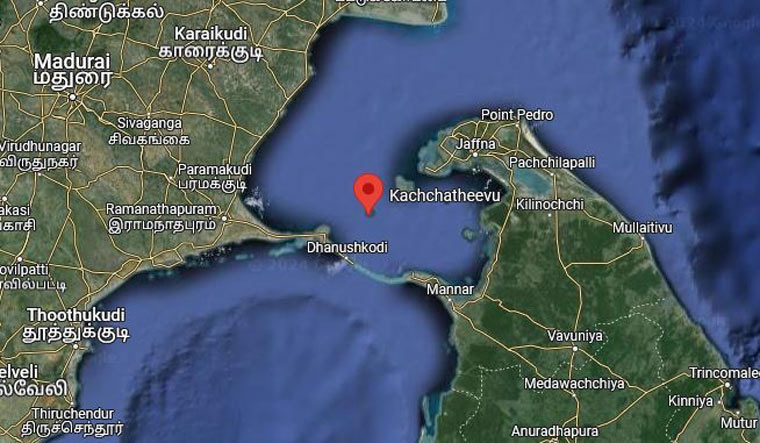


This week, the world remained as happening as it always is. Though few nations still go by the conventional definition of power to assert their presence in global politics, there are nations that are promoting the constructivist definition of power and are trying to change the entire ball game of the global politics by promoting collaboration and democratization instead of competition to grow.
India is trying to bring together the like-minded nations with a focus on sustainable development and environment protection this week, which is a prioritised agenda for many multilateral platforms as well. India is calling upon the entire world to contribute to this critical objective. However, this week, the bilateral relations between India and Sri Lanka observed a jolt as amid the upcoming Lok Sabha elections in India, the issue of handing over Katchatheevu island in Tamil Nadu to Sri Lanka has become heated.
This small island, situated between Jaffna of Sri Lanka and Rameswaram of India has great significance in geo-politics from strategic, trade and tourism’s point of view. The response received from an RTI this week revealed that in 1974, the then Indira Gandhi government had handed over Katchatheevu island to Sri Lanka under an agreement, which was not officially approved by the Secretary of State for India. Official documents and parliamentary records reveal how the then Indian government gave away the control of this significant island after losing a battle in the Palk Strait to Sri Lanka. On the other hand, the Sri Lankan government had made all efforts to get this island. After this revelation regarding Katchatheevu island through RTI, the political turmoil has intensified. According to reports, since India’s independence, Sri Lanka, which was Ceylon at that time, was continuously staking its claim on this island. However, the Delhi government opposed it for decades. Despite this, after independence the Indian Navy (then the Royal Indian Navy) could not conduct exercises on the island without Ceylon’s permission. But at the same time, in October 1955, the Ceylon Air Force had conducted its exercises on this island.
In view of Ceylon’s claim and the ongoing opposition from India, on 10 May, 1961, former Prime Minister Jawaharlal Nehru dismissed the issue calling it irrelevant. He wrote that he would have no hesitation in giving up the Indian claim to this island. He also mentioned that he does not value this little island at all and would have no hesitation in giving up his claims to it. He did not want this issue to be discussed in parliament.
This small island was earlier used for fishing by both Sri Lankan Tamil and Tamil Nadu fishermen. It was initially a part of Ramanathapuram, India, before becoming part of the Madras Presidency during British rule. In 1920, efforts were made to establish a maritime boundary between India and Sri Lanka to regulate their respective fishing industries. Both colonies claimed ownership of the island, but the delegations from both the nations (ruled by British government) could not reach to any conclusion. When India got independence, Ceylon started claiming the island. Pt. Nehru, instead of making Sri Lanka understand and respect the territorial integrity of India, gave the statement that further provoked Sri Lanka to place its claims on this small yet strategically important island.
Ownership of the island remained a subject of disagreement between India and Sri Lanka until 1974. In 1974, India acknowledged Sri Lanka’s ownership of the island under the Prime Ministership of Ms. Indira Gandhi. However, this acknowledgment was disputed in the Indian Supreme Court because it hadn’t been ratified by the Indian Parliament. The recognition of an island that is culturally significant to fishermen from Tamil Nadu state in India prompted protests by politicians from Tamil Nadu who argued for its claim to Indian sovereignty. Additionally, both countries’ fishers rely on the fishing grounds around Katchatheevu, as per the Indo-Sri Lankan agreement which permits Indian fishermen to fish there and dry their nets on the island.
Indian External Affairs Minister clearly stated this as a ‘live’ issue as he mentioned how Prime Ministers like Jawaharlal Nehru and Indira Gandhi referred to Katchatheevu, which was given to Sri Lanka in 1974 as part of a maritime boundary agreement, as a ‘small island’ and ‘tiny rock,’ during a press conference. This indicates that the issue has always been an ongoing concern rather than arising suddenly. The experts are now asking if India would reclaim this strategically significant island, and if yes, what would be the process.
Meanwhile, Sri Lankan Minister of Fisheries, Douglas Devananda, has stated that the recent assertions from India about ‘regaining’ Katchatheevu island from Sri Lanka are unfounded.
India has time and again stated that it would not negotiate with its territorial integrity at any cost. Sri Lanka must understand that it is a new India that does not compromise with its national security, unity and integrity. Knowing the history of Katchatheevu, it is expected that Sri Lankan government would cooperate and support India in reclaiming its territorial veracity.